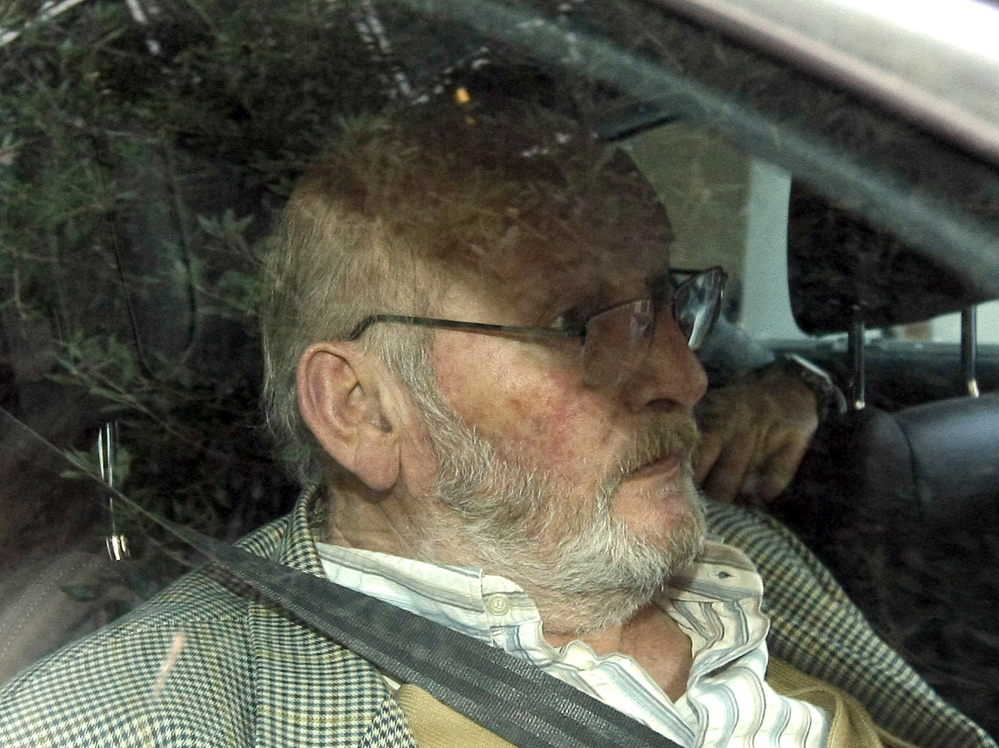MARSEILLE, France — A disgraced French businessman was convicted of fraud and sentenced to four years in prison on Tuesday for filling tens of thousands of breast implants with industrial grade silicone. But he left the courthouse freely after lodging an appeal, and thousands of women will have to wait longer to discover if they will receive damages.
The ruling in the criminal case by a court in Marseille, which all the trappings of a class-action lawsuit, ordered up to 40 million euros ($55 million) in damages paid to a fraction of the 125,000 women worldwide who received the implants.
However, that sum for Jean-Claude Mas’ company, Poly Implant Prothese, was largely theoretical because it is bankrupt, and because the appeal froze any efforts to find alternate sources. It will be months, if not years, before any women see money many say they need to remove the faulty, leak-prone implants.
In addition to his prison sentence, the French businessman was fined 75,000 euros ($103,000).
His lawyer promised to appeal immediately, and Mas left the courthouse without comment. The appeal freezes the jail term, fine and any damages.
Four managers in the now-defunct Poly Implant Prothese received lesser sentences.
The decision established a complex system of damages for about two-thirds of the 7,100 women who joined the case, with a potential total of 40 million euros ($55 million) to be paid by those convicted. But, like Mas’ fine, it was not clear where that money would come from.
Further complicating any payments, the court also ruled that the German product-testing company TUeV Rheinland, which cleared PIP for certification, was a victim of Mas’ deception.
A Toulon commercial court last month separately ordered TUeV to pay damages to more than 1,600 women and six distributors for the implants. TUeV denies responsibility and has promised to appeal that ruling, saying it was as deceived as anyone by PIP.
The PIP implants were filled with industrial grade silicone – instead of medical grade – and were prone to leak. Some 125,000 women underwent plastic surgery with PIP implants.
Mas has since dissolved the company. Because PIP is bankrupt, the women who joined the complaint against the French company are unlikely to retrieve much compensation from him. But TUeV, a leader in the industry that was charged with checking the quality of the implants, has deep pockets.
“We got sick, and then they told us it’s not the silicone’s fault. But it was – it was the silicone’s fault,” said Martine Favret, a Frenchwoman who wore a red brassiere over her white t-shirt as a symbol of what she described as her “revolt.”
PIP once claimed its factory in southern France exported to more than 60 countries and was among the world’s top implant makers. According to government estimates, more than 42,000 women in Britain received the implants, more than 30,000 in France, 25,000 in Brazil, 16,000 in Venezuela, and 15,000 in Colombia.
Sales of the implants ended in March 2010. After the first reports emerged of implants rupturing, regulators across Europe tightened oversight of medical devices.
Favret, like many of the women, called for more oversight of an industry they say could be prone to cutting corners.
“This is more dangerous than a medication that you can just stop taking. We have these inside us. If we want them gone, we have to undergo surgery. We have to stop protecting these giant industries just for cash. Cash is good, but health is better,” she said.
Jan Spivey, who received implants after undergoing a mastectomy for breast cancer in 2002, said she was vindicated by Tuesday’s ruling. For years, the British woman said, she could not understand why, even with her cancer gone, she was still sick. Then, when the reports about PIP emerged in 2011, she said she knew. She said the hospital confirmed that her implants were seeping silicone.
Copy the Story LinkSend questions/comments to the editors.



Success. Please wait for the page to reload. If the page does not reload within 5 seconds, please refresh the page.
Enter your email and password to access comments.
Hi, to comment on stories you must . This profile is in addition to your subscription and website login.
Already have a commenting profile? .
Invalid username/password.
Please check your email to confirm and complete your registration.
Only subscribers are eligible to post comments. Please subscribe or login first for digital access. Here’s why.
Use the form below to reset your password. When you've submitted your account email, we will send an email with a reset code.